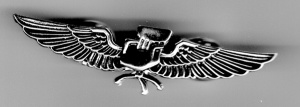 My first real job as an Army Aviator was as a junior staff officer in an Attack Helicopter Battalion. Instead of helicopters and soldiers I was given projects and paperwork. Instead of employing combat power, I was employing PowerPoint.
My first real job as an Army Aviator was as a junior staff officer in an Attack Helicopter Battalion. Instead of helicopters and soldiers I was given projects and paperwork. Instead of employing combat power, I was employing PowerPoint.
My turn in the cockpit would come—and it would go—but the lessons I learned in that first staff job have stuck with me to this day. Here are 5 things I learned early on:
1. The BLUF Principle. BLUF stands for “Bottom Line Up Front.” Every communication (e.g. memo, report, message, etc.) should start with what’s most important. Forget the structure they taught you in English class, get to the point, then—once you have their attention—share the pertinent background, analysis, and exposition.
2. Execution trumps planning. A poor plan executed brilliantly is always better than a brilliant plan executed poorly. As a planner, don’t go for a brilliant plan. Instead, set people up for brilliant execution. Often that means creating a simple, elegant plan that’s easy to understand, easy to communicate and easy to believe in.
3. Leaders are everywhere. Your best leaders aren’t necessarily the ones getting the most out of people on the front line. They may be the ones in the back room helping part-timers understand how the mundane and seemingly inconsequential tasks they perform everyday help ensure the success of the entire organization.
4. Don’t sit on information. The longer you take to process and pass on information—any information—the less time everyone down the line has to think, plan and act. Information is the fuel of informed decisions, do everything you can to maximize the time decision makers have with critical data.
5. Those bastards at Squad HQ. It doesn’t matter what level you’re at in an organization, the folks at the next higher level will seem like incompetent idiots who only exist to make your job—and life—miserable. Get over it. Assume positive intent and give them the benefit of the doubt. Make time with them face to face on a regular basis to have open and honest discussions.
What did you learn from working on a staff?
- Click to share on X (Opens in new window) X
- Click to share on Facebook (Opens in new window) Facebook
- Click to share on LinkedIn (Opens in new window) LinkedIn
- Click to share on Reddit (Opens in new window) Reddit
- Click to email a link to a friend (Opens in new window) Email
- Click to print (Opens in new window) Print